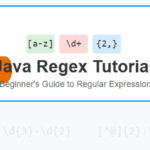In the ever-evolving world of Java, developers are constantly seeking ways to enhance code readability and reduce boilerplate. Java 10 introduced the var keyword as part of the Local-Variable Type Inference (LVTI) feature, providing a more concise and expressive syntax for variable declarations. In this article, we’ll delve into the nuances of the var keyword, exploring its usage, benefits, and potential pitfalls.
Usage Instructions
Declaring Variables with ‘var’
The primary purpose of the var keyword is to declare local variables without explicitly specifying their types. The compiler infers the type based on the assigned value. Let’s look at a basic example:
public class VarExample {
public static void main(String[] args) {
// Using var to declare variables
var number = 42; // Inferred as int
var message = "Hello, Java!"; // Inferred as String
// You can still explicitly specify the type if needed
var pi = 3.14; // Inferred as double
double explicitPi = 3.14; // Explicitly specifying the type
}
}In this example, the compiler infers that message is of type String and number is of type int. This concise syntax can be especially beneficial when dealing with complex data types or when the type is obvious from the assigned value.
Use Cases in Enhanced for-Loops
The var keyword can also be utilized in enhanced for-loops, making the code more readable when iterating over collections:
// Arrays and collections
var array = new int[]{1, 2, 3}; // Inferred as int[]
var list = List.of("apple", "orange", "banana"); // Inferred as List<String>
// Iterating through a map
var map = Map.of("key1", 1, "key2", 2);
for (var entry : map.entrySet()) {
System.out.println(entry.getKey() + ": " + entry.getValue());
}
List<String> fruits = List.of("Apple", "Orange", "Banana");
for (var fruit : fruits) {
System.out.println(fruit);
}Here, the type of fruit is inferred as String, eliminating the need to explicitly declare the type.
Limitations and Considerations
While the var keyword enhances readability, it’s essential to use it judiciously. Some considerations include:
- Maintaining Readability: Use
varwhen it improves code clarity. Avoid it in cases where explicitly declaring the type makes the code more understandable. - Limited to Local Variables: The
varkeyword is applicable only for local variables within methods or code blocks. It cannot be used for method parameters, fields, or class-level variables.
Conclusion
The introduction of the var keyword in Java brings a new level of conciseness to variable declarations, enhancing developer productivity and code readability. By allowing the compiler to infer types, Java developers can write more expressive and concise code without sacrificing type safety.
In your Java projects, consider incorporating the var keyword where appropriate to streamline code and improve maintainability. However, always prioritize code clarity and readability over brevity.
Frequently Asked Questions
Does using ‘var’ affect the performance of the code?
No, using ‘var’ does not affect the performance of the code, as the type is still statically inferred at compile time.
When should I use ‘var’ in my code?
‘Var’ should be used when the right-hand side of the declaration makes the type obvious, and using ‘var’ would improve the readability of the code.
Can ‘var’ be used with null values?
Yes, ‘var’ can be used with null values, and the type will be inferred as the type of the null value.
Can I use ‘var’ for method parameters or fields?
No, the var keyword is limited to local variables within methods or code blocks. It cannot be used for method parameters, fields, or class-level variables.
Does ‘var’ sacrifice type safety?
No, the use of var does not compromise type safety. The type is still statically inferred by the compiler at compile-time, ensuring the code remains robust and free of runtime type errors.
When should I avoid using ‘var’?
Avoid using var in situations where explicitly declaring the type contributes to better code understanding. For example, when dealing with complex logic or when the type may not be immediately obvious from the assigned value.
This article provides an overview of the ‘var’ keyword in Java, its usage, and best practices. By understanding how to use ‘var’ effectively, developers can make their Java code more expressive and maintainable.





Leave a Reply
You must be logged in to post a comment.